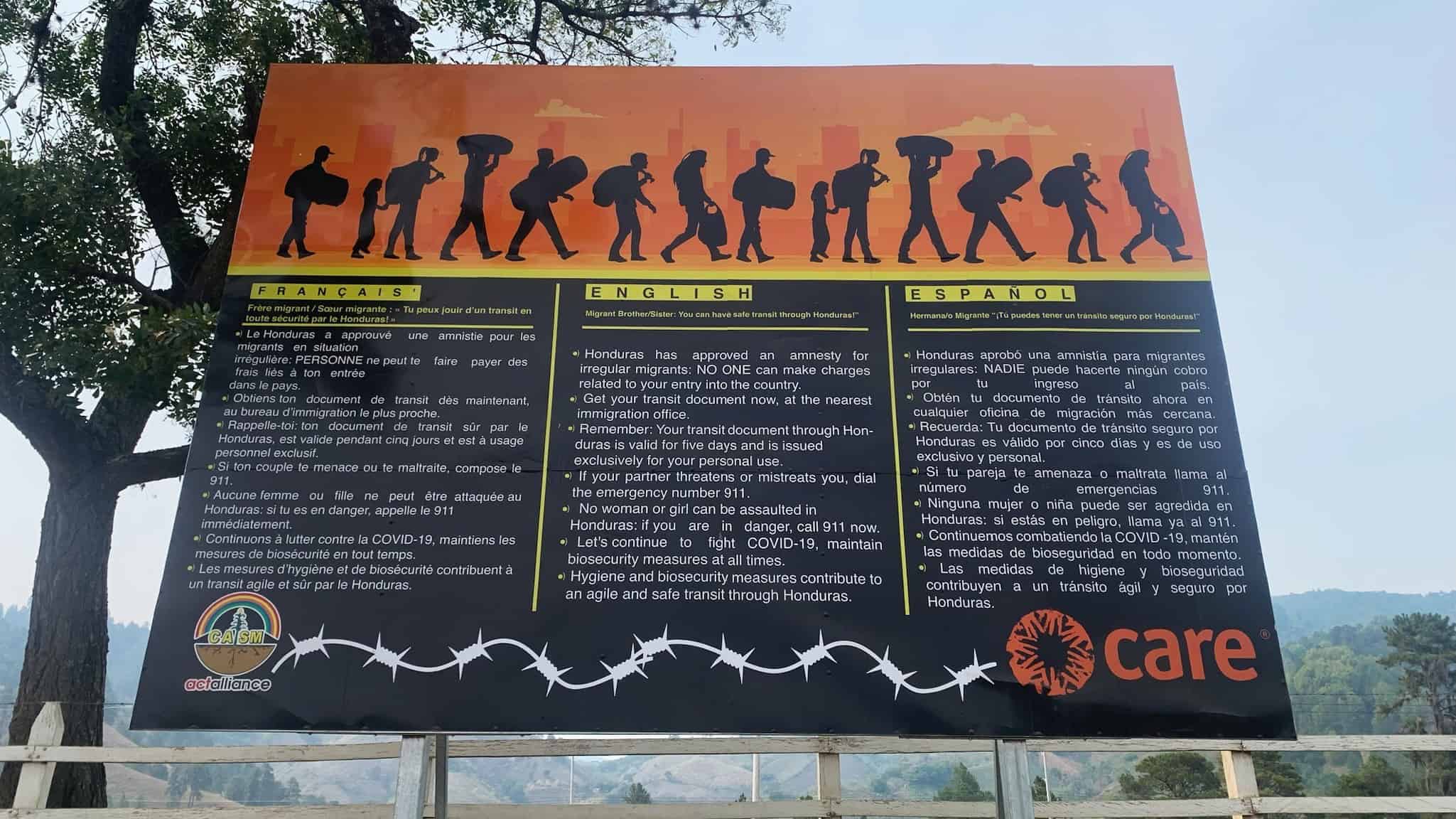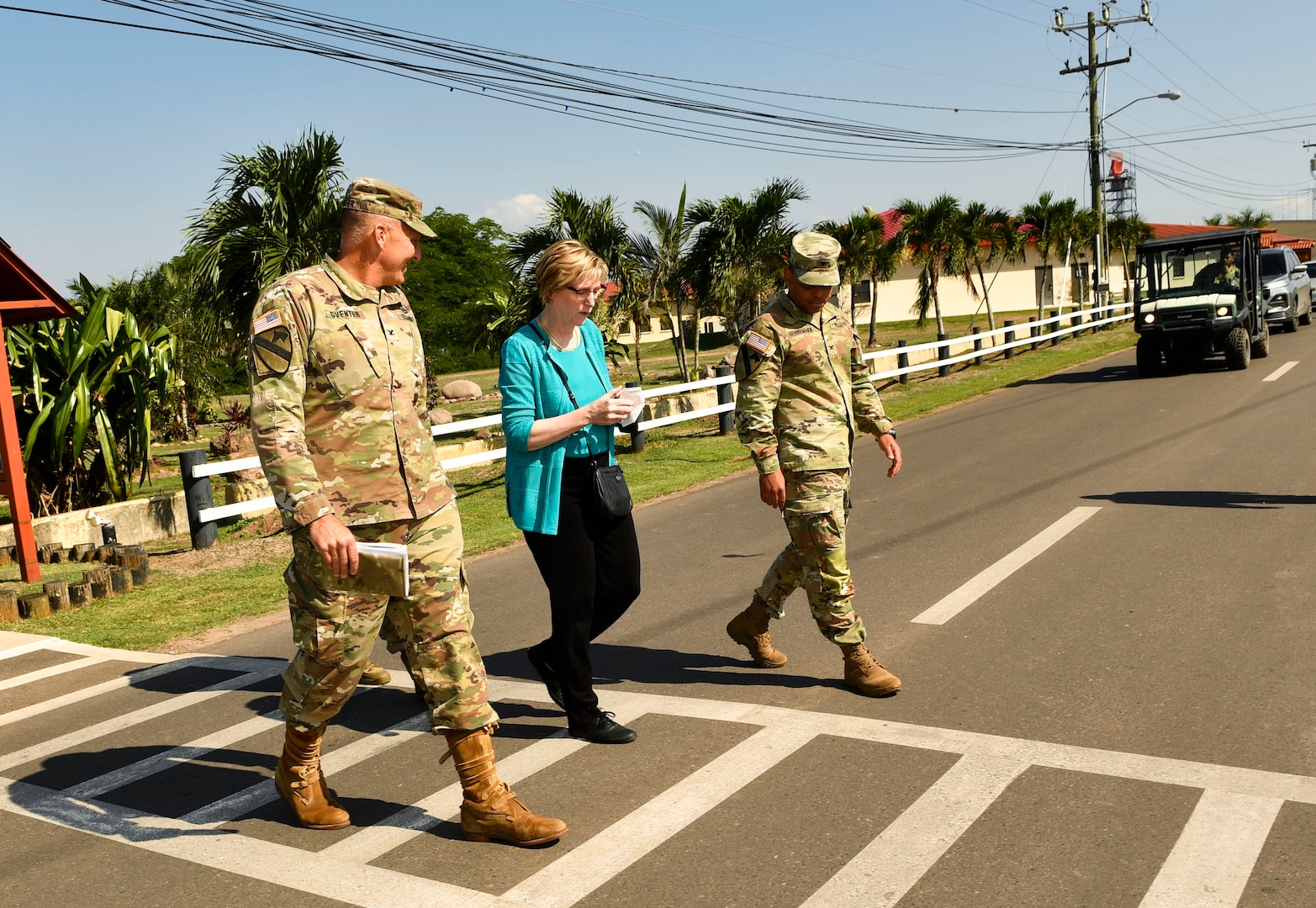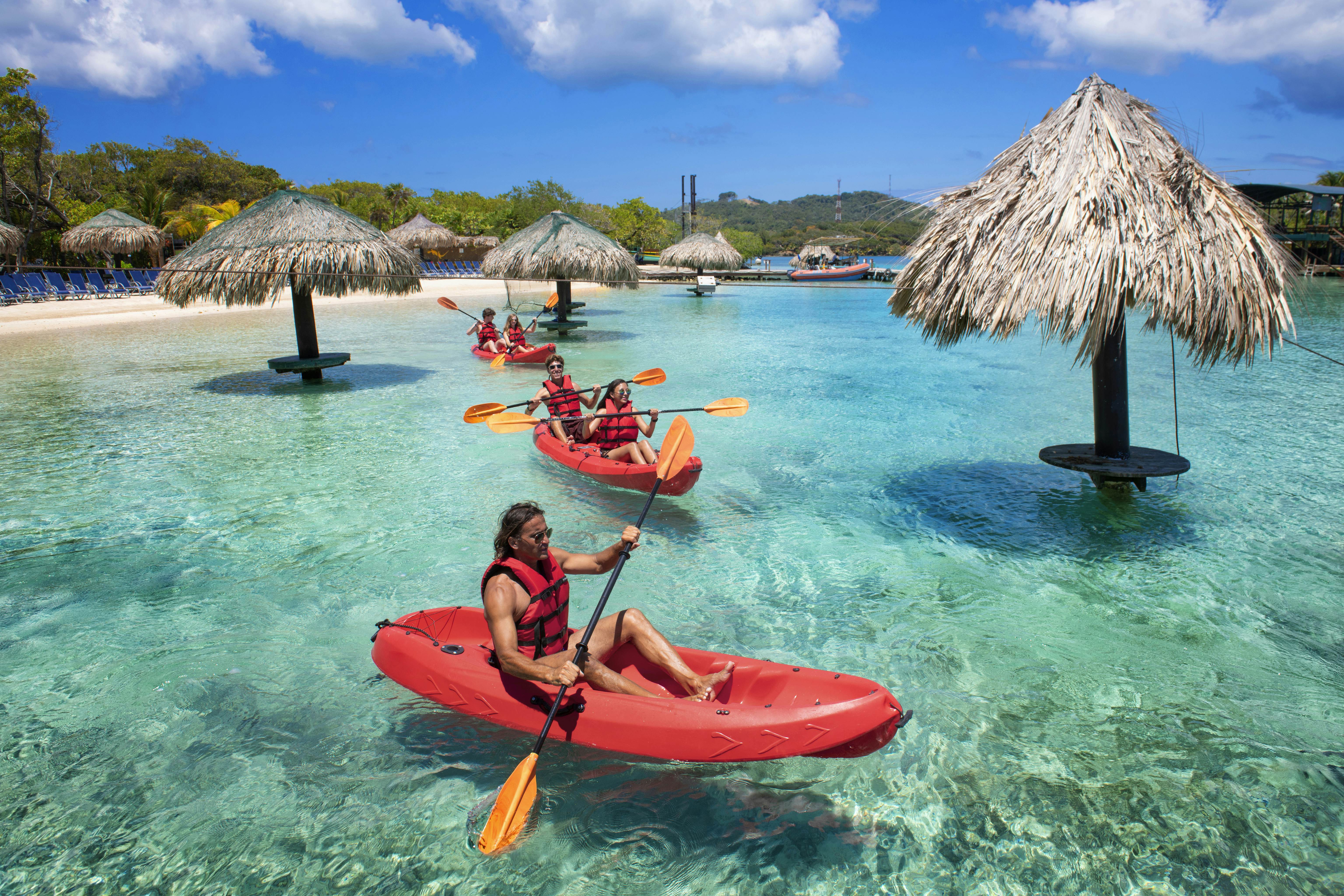Honduras Travel: Essential Safety Tips for High-Risk Areas
Oct 15, 2024 | By Piz za
Honduras, a country with a rich cultural history and an abundance of natural beauty, offers travelers unique experiences from the ancient Mayan ruins of Copan to the stunning Bay Islands. However, the nation’s beauty is juxtaposed with significant safety challenges, including a high crime rate and health risks such as malaria and dengue fever. In light of this, travelers must exercise a high level of caution and stay informed about the risks and safety precautions necessary for visiting Honduras, especially in high-risk areas.
Understanding the Risks
The Australian Government has issued a travel advisory urging travelers to exercise a high level of caution in Honduras, with a YELLOW travel advice level indicating that visitors should be aware of the risks, safety, laws, and contacts in the country (Australian Government). The U.S. Department of State has also advised travelers to reconsider travel to Honduras due to crime and kidnapping, specifically urging against travel to the Gracias a Dios Department because of crime (U.S. Department of State).

Violent crime, such as homicide, armed robbery, and kidnapping, is common in Honduras. Violent gang activity, including extortion and violent street crime, presents a significant threat to residents and travelers alike. Furthermore, health risks are prevalent throughout the country, including malaria and dengue fever, which are a concern in all regions, including the tourist-favored Bay Islands (TravelPander; CDC).
Safety Tips for Travelers
To ensure a safe and enjoyable journey in Honduras, it is crucial to take specific safety precautions. Here are some valuable tips for navigating high-risk areas:
1. Stay Informed
Before and during your trip, it’s crucial to stay informed about the local safety situation. Research the areas you plan to visit thoroughly, reading recent news reports, online forums, and safety guides. It’s also helpful to join online traveler communities or expat groups where people share real-time experiences. Checking updated travel advisories, such as those issued by the U.S. Department of State or your country’s foreign office, is essential to stay aware of any changes in the local security environment. In addition, setting up notifications or alerts for news in Honduras can help you stay informed throughout your trip.
Two additional tips:
- Always have a backup plan in case political unrest or natural disasters occur, including identifying the nearest embassy or safe zones.
- Use apps or websites that provide real-time updates on safety alerts, such as travel advisories or local news.
2. Secure Transportation
Transportation is a key safety concern in Honduras, especially in larger cities where public transport systems are unreliable and can attract criminals. Hiring a reputable private driver or using taxis arranged through your hotel is safer than hailing a cab off the street. If you’re using ride-sharing services like Uber, always verify the driver’s identity and vehicle details before getting in. It’s also wise to avoid public buses, especially after dark, as these are common targets for theft and crime. Secure transportation not only reduces your risk of theft but also ensures you’re not stranded in unsafe areas.

Two additional tips:
- Request airport transfers in advance through your hotel to ensure you’re using a trusted service.
- If you’re renting a car, make sure it has GPS tracking and anti-theft devices, and avoid driving through remote areas at night.
3. Be Cautious After Dark
Honduras, like many countries with high crime rates, sees an increase in risk after dark. Nighttime is when most muggings and assaults occur, particularly in isolated areas or streets that are poorly lit. To mitigate this risk, limit your activities after sunset and stay in busy, well-lit areas, such as popular restaurants or entertainment districts. If you must move around at night, avoid going out alone. Traveling in groups or using secure transportation services can provide an added layer of security.

Two additional tips:
- Avoid wearing flashy jewelry or expensive items that might attract attention, especially at night.
- Pre-plan your night out, ensuring you have safe transport arranged to get back to your accommodation.
4. Protect Your Valuables
Honduras has a high rate of petty crime, including pickpocketing and bag snatching, especially in crowded tourist areas or local markets. Keep your belongings secure by using anti-theft bags with locking zippers, and avoid flashing expensive items like smartphones, cameras, or jewelry. Hotel safes are a reliable option for storing valuables while you’re out. Additionally, make copies of your passport, travel documents, and identification, and carry those instead of the originals when exploring the city.

Two additional tips:
- Consider using a money belt or hidden pouch to store cash and important documents discreetly under your clothes.
- Stay aware of your surroundings when withdrawing money from ATMs, especially in public areas, and try to use ATMs located inside banks.
5. Health Precautions
Honduras is in a tropical climate zone, which makes mosquito-borne diseases like malaria and dengue fever a real risk. To protect yourself, wear long-sleeved clothing, use mosquito repellent, and sleep under mosquito nets, especially in rural areas. It’s also a good idea to visit a travel clinic before your trip to get the necessary vaccinations or preventative medication for diseases common in Honduras. Staying hydrated and being cautious with the food you eat, especially in street markets, can help you avoid food- or water-borne illnesses.

Two additional tips:
- Carry a small first-aid kit with you, including mosquito repellent, antihistamines, and any medications you might need in case of emergencies.
- Make sure you drink only bottled or purified water, as tap water in Honduras can carry harmful bacteria or parasites.
6. Be Aware of Local Laws
Honduras has strict laws, particularly regarding drugs and crime. Even small amounts of drugs can result in heavy fines or imprisonment. Understanding local customs is equally important, as behavior considered acceptable in your country may be illegal or frowned upon in Honduras. For example, public intoxication or rowdy behavior could draw unwanted attention from law enforcement. Always be respectful when interacting with local authorities or during any encounters that involve checking identification or travel documents.

Two additional tips:
- Keep a digital copy of local emergency contacts on your phone, such as the number for your country’s embassy and local police.
- Research the specific cultural norms for greeting people, dressing modestly, and tipping to avoid any unintended disrespect.
7. Connect with Your Embassy
Registering your travel with your country’s embassy in Honduras is a proactive step that can help in case of emergencies, such as political unrest or natural disasters. Many embassies also provide helpful resources, such as local travel advisories and safety alerts. In an emergency, the embassy can assist with legal issues, medical needs, or evacuation if necessary. Additionally, having a direct line to your embassy means they can communicate any important updates during your stay.

Two additional tips:
- Sign up for the embassy’s travel alert system to receive real-time updates on safety and health concerns.
- Make sure your embassy has up-to-date information on your itinerary and contact details to ensure they can reach you if needed.
8. Trust Your Instincts
Sometimes, your best defense is your own intuition. If a situation feels off, trust your instincts and remove yourself from potential danger. Whether it’s a suspicious person, an uncomfortable setting, or an unsafe activity, it’s better to err on the side of caution. This mindset will help you stay vigilant and make quick decisions if you encounter a risky situation. Being constantly aware of your surroundings will reduce the likelihood of you falling into dangerous scenarios.

Two additional tips:
- Keep a low profile by blending in with locals and avoiding behaviors that might mark you as a tourist.
- Avoid discussing your travel plans with strangers or sharing your location in real-time on social media.
List of Attractions
- Mayan Ruins of Copán:
- Famous for its intricate stone structures and elaborate carvings, Copán is one of the most significant Mayan archaeological sites in Central America.
- Bay Islands:
- With stunning beaches and rich coral reefs, this archipelago is a paradise for snorkeling and diving enthusiasts.
- Pico Bonito National Park:
- An ideal spot for nature lovers, this park features numerous hiking trails and diverse biodiversity.
- Colonial Town of Gracias:
- One of the best-preserved colonial towns in Honduras, known for its historic homes and rich culture.
- La Tigra National Park:
- This park is perfect for trekking, with trails that allow you to explore lush forests and enjoy the fresh mountain air.
When exploring Honduras, you will not only be captivated by its stunning landscapes but also by the rich culture and ancient history of the country. However, it is essential to prioritize your safety by following the tips mentioned in this article. By combining sightseeing with personal safety, you can ensure a memorable journey in Honduras.
Conclusion
While Honduras is working to improve safety within its borders and has even been awarded the WTTC Safe Travels Stamp for its COVID-19 protocols, the country still presents significant safety challenges for travelers (TourHero). By following these safety tips and remaining vigilant, travelers can mitigate some of the risks associated with visiting high-risk areas in Honduras. It is essential to balance the desire for adventure with the need for safety, ensuring that your travel experience is both memorable and secure.
Related Blogs

India vs New Zealand: A Traveler’s Perspective on Two Unique Destinations
India vs New Zealand are two destinations that offer contrasting yet equally mesmerizing experiences. India vs New Zealand comparisons often highlight India’s centuries-old traditions, bustling bazaars, and architectural marvels versus New Zealand’s breathtaking natural landscapes and adrenaline-pumping adventures. Whether you’re a culture enthusiast, nature lover, or thrill-seeker, this guide will help you explore the best […]

Barbastro Barcelona: A Journey Through Spain’s Hidden Gems
Spain is a treasure trove of culture, history, and breathtaking landscapes. Two destinations that encapsulate the country’s charm are Barbastro Barcelona. While Barcelona is renowned for its vibrant city life and iconic architecture, Barbastro offers a quieter, more traditional Spanish experience nestled in the heart of the Somontano wine region. Together, they create the perfect […]

The Complete Guide to the Carry On Cast: Past, Present, and Future
The Carry On films stand as a cornerstone of British cinema, delivering decades of laughter and unforgettable characters. This iconic comedy franchise, spanning over 30 years, combined slapstick humor, clever wordplay, and a talented ensemble cast that became household names. This guide explores the history of the Carry On cast, their contributions to the franchise, […]

Exploring Austria’s Iconic Opera Houses
Austria, a nation steeped in a rich cultural heritage, stands as a beacon of classical music and artistic excellence. Among its most revered cultural institutions are its opera houses, which serve as both architectural marvels and stages for world-class performances. This report delves into the history, architecture, notable performances, and cultural significance of Austria’s iconic […]

Exploring the Distinctive Andean Music of Bolivia
The Andean music of Bolivia is a vibrant and integral part of the country’s cultural tapestry, deeply rooted in the traditions and spiritual practices of the Andean peoples. This genre of music is not only a form of artistic expression but also a medium through which the stories, legends, and historical narratives of the Aymara […]

Learning About the Carnival Culture in Rio de Janeiro, Brazil
The Rio de Janeiro Carnival, often heralded as the world’s largest and most famous carnival celebration, is a vibrant showcase of Brazilian culture, history, and community spirit. This annual event, which draws millions of participants and spectators from around the globe, is a testament to Brazil’s rich cultural heritage and its capacity for joyous celebration. […]

Mastering Mozzarella: A Taste of Italy
Mozzarella, a semi-soft cheese originating from Italy, is cherished for its creamy texture and mild flavor. Traditionally crafted from buffalo milk, it also finds a popular variant made from cow’s milk. This cheese is not just a culinary staple but a cultural icon, deeply embedded in Italian society and cuisine. Its high moisture content contributes […]

Discovering the Art of Calligraphy in South Korea
Korean calligraphy, known as “Seoye” (서예), stands as a testament to the rich cultural heritage and artistic expression of Korea. This ancient art form, which involves the artistic writing of both Hanja (Chinese logographs) and Hangul (the Korean native alphabet), transcends mere communication to become a profound medium of aesthetic and spiritual expression. As we […]

Scotland’s Tartan: A History of Highland Dress
Tartan, with its vibrant patterns and historical richness, is one of Scotland’s most iconic symbols. It is inextricably linked to the kilt and the national dress of Scotland, embodying both cultural heritage and identity. This detailed report delves into the origins, evolution, and cultural significance of tartan and Highland dress, exploring how this textile has […]

Tribal Arts of Papua New Guinea: A Unique Heritage
Papua New Guinea (PNG) is a nation marked by its remarkable cultural diversity, with over 800 distinct tribes, each possessing its own language and customs. This diversity is vividly expressed through the tribal arts, which are not only a testament to the rich heritage of the indigenous people but also serve as a living tapestry […]

